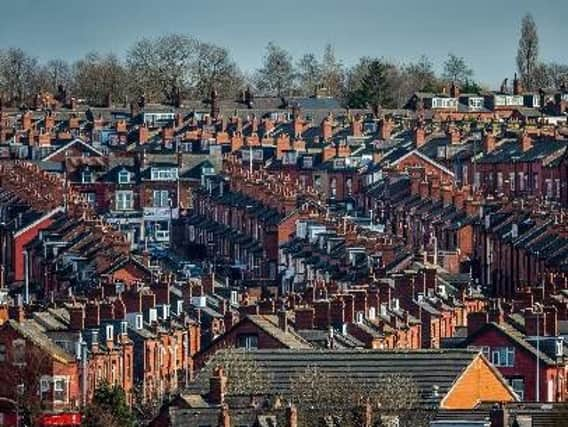Kevin Hollinrake MP: An opportunity to tackle housing crisis


That was a key point in my recent speech in Parliament during the debate on temporary accommodation.
There are currently 78,000 people in temporary accommodation, including hostels and bed and B&Bs. That’s an increase of 63 per cent on the 2010 figure although, mercifully, much lower than its peak of 100,000 in 2003. We need more affordable homes (up to 80 per cent of market value) and more social homes (50 per cent of market value) and we need to move people out of temporary accommodation into decent permanent housing.
Advertisement
Hide AdAdvertisement
Hide AdAn additional three million people live in relative poverty after housing costs are taken into account and home ownership among young people has been steadily dropping; in 1996, 54 per cent of households led by a 16-34 year old were owner-occupiers. This had reduced to 34 per cent by 2016.
The Government is already doing a great deal by allocating £550m to tackle homelessness, supporting the Homeless Reduction Act, which was introduced by my excellent colleague Bob Blackman MP, aiming to halve homelessness by 2022 and to eradicate it by 2027.
I also welcome its actions on Supported Housing (a category which includes homeless hostels and refuges for women fleeing domestic violence) and was pleased that it listened to the recommendations of the report by the Joint Communities and Local Government and Work and Pensions Committee, on which I served. Annual new build dwelling starts totalled 164,960 in the year to June 2017, an 85 per cent increase on the 2009 low point, but significantly below the widely accepted annual national need of 250,000.
So, there is much more to be done. Government proposals and policies for a standard assessment of local housing need, compulsory local plans, more sites and help with finance for small and medium-sized builders, more freedom for councils and housing associations to build, more money for associated infrastructure and an extra £2bn for social housing, bringing the total taxpayer contribution to affordable homes to £9bn by 2020, are all very welcome.
Advertisement
Hide AdAdvertisement
Hide AdLand, of course, is the biggest problem. Green belt could be graded according to quality and location to allow the development well-designed and planned settlements and urban extensions. Government policies are delivering about 50,000 affordable homes every year – a creditable performance but we need to do much more – and his cannot all be the responsibility of the taxpayer.
Many homes are delivered by requiring new developments to provide a suitable percentage of affordable homes on each site. However, many developers are able to game the system by using ‘viability assessments’ to argue that they cannot afford to provide them on a specific site.
According to research by Shelter, 79 per cent of the affordable homes that should have been provided have been avoided by using these assessments. We should consider a new policy for contributions from developers to pay for affordable homes and social homes to rent. I favour a simple system of tariffs, a cash amount per bedroom or per square foot, which can vary by local authority to take into account local prices and need.
We might also consider allowing investors to put residential homes into a self-invested personal pension (SIPP), provided they are prepared to let these out long-term at a social rent.
Advertisement
Hide AdAdvertisement
Hide AdThe properties would be contractually managed by local authorities or housing associations and would offer much-needed, good-quality, ultra-affordable accommodation, a good long-term investment return and allow the better-off to help the less well-off all at the same time. What’s not to like?
Most landlords are very responsible in delivering of decent-quality accommodation in the private rented sector, but some do not and I believe we should consider introducing a clear, well-enforced national property rental standard. The draft Tenant Fees Bill, currently before Parliament, may provide this opportunity and could also encourage longer tenancies on a voluntary basis with attractive incentives, such as an exemption from the new rules that limit tax relief on mortgage interest.
Success is not measured in the size or number of our ideas, but in the implementation of effective solutions.
Kevin Hollinrake is MP for Thirsk and Malton